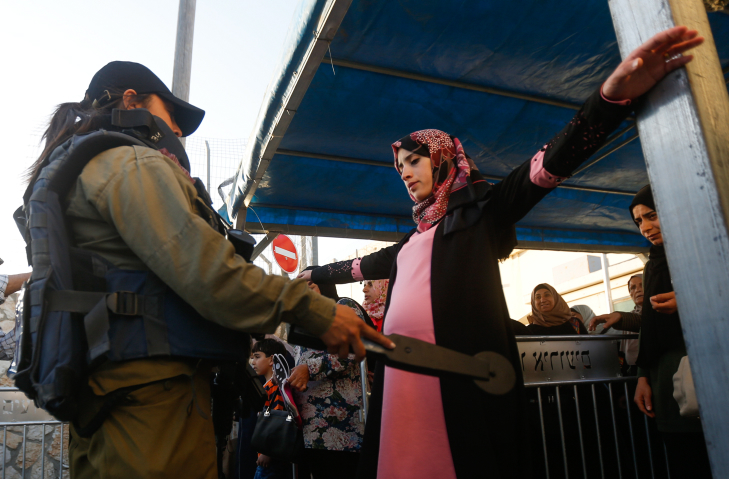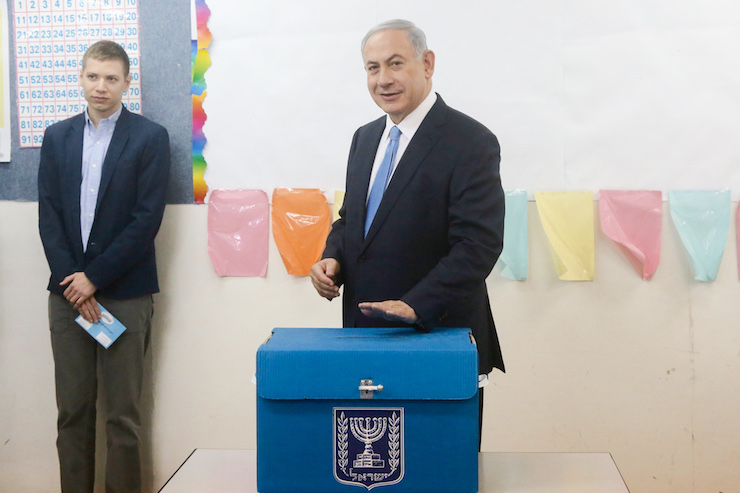In democratic countries, elections are conventionally described as ‘a celebration.’ But in an undemocratic reality of endless military occupation, they become an overt celebration of the violence of the powerful.
By Hagai El-Ad

“So long as I do not firmly and irrevocably possess the right to vote I do not possess myself. I cannot make up my mind — it is made up for me. I cannot live as a democratic citizen, observing the laws I have helped to enact — I can only submit to the edict of others.”
Dr. Martin Luther King Jr. delivered these words in his 1957 “Give Us the Ballot” speech, part of his attempt to challenge the reality in America’s Deep South, where Black people were citizens yet still denied the right to vote by various ruses. For Palestinians who have lived under Israel’s rule since 1967, the mere right to vote is not even an option.
In a few months the public will go to the polls for another round of elections in which we, Israeli citizens, will vote and make decisions not only about our own fate, but also about the fate of millions of subjects who are perpetually denied political rights. The regulations and orders we dictate will continue to advance our interests while managing their lives. All they can do is submit to the edict of others.
In democratic countries, elections are conventionally described as “a celebration of democracy.” But in an undemocratic reality, elections sadly become an overt celebration of violence.
Election campaigns in Israel thoughtlessly celebrate the privileges of those eligible to vote, while showing almost complete apathy to the exclusion of millions of subjects. Palestinians, of course, have no need to be reminded of their condition — they are well aware of the reality in which they live. But even so, a situation in which every few years Israelis spend months wondering exactly how they should continue to control the lives of others marks a nadir in the violence we have internalized.
Whether public discourse during the elections includes a debate on these issues, or whether politicians and the public do everything they can to avoid mentioning the occupation, the political choices Israelis make determine how to entrench the occupation regime. We determine how we will manage the enormous prison that is the Gaza Strip from the outside; how many homes we will demolish and how many communities we will displace in the West Bank; and how many Palestinian families will be deprived of their homes in East Jerusalem.
In the meantime, day by day and week by week, we are witnessing an election campaign in which the lords of the land constantly drive home their message: no one counts the subjects of military rule. As we continue to possess their lives, opinions, and feelings, we have no problem continuing to engage in our political debates over their heads. We do so openly, while taking pride in our “vibrant debate” and our “celebration of democracy.” And we do so while casually and utterly negating the humanity of millions of people whose fate will also be determined for the next few years.
Immediately after the election campaign, and in the intervening years before the next one, we will rely on these “democratic elections” to both justify what we do to our subjects as well as to market this reality as an acceptable one. In this way, the election actually forms a vital component in legitimizing our ongoing control of the subjects’ lives. After all, every Israeli decision, no matter how arbitrary, is seen as the product of these elections. This is an inherently violent situation, since it is impossible to justify the ongoing violence without being part of the violence itself.

The violence is manifested not only when a soldier shoots or beats a Palestinian. It is there every time a lawyer in the State Attorney’s Office closes a file of a killing, or when a Supreme Court justice approves another home demolition, or when an Israeli official prevents another Palestinian student from traveling abroad to continue their studies. Their lives are in our hands, and we apply this violence through a slow, protracted, and arbitrary bureaucracy. Moreover, the presence of “democratic elections” is of great importance not only in terms of image and propaganda, but also as a crucial valve that hinders assertive action by the international community that would, at last, express its rejection of this reality.
For all these reasons, even a renowned paragon of democracy such as Knesset Deputy Speaker MK Bezalel Smotrich makes sure to join the celebration and sing the praises of democracy, while at the same time presenting his program for perpetuating the existing reality: “Even in the absence of the right to vote for a fully sovereign parliament, this is not an apartheid regime, at most it lacks a component in the basket of liberties, or rather — a deficit in democracy.”
This is what millions of Israelis will do over the coming months. Another election campaign, another opportunity to determine who will “firmly and irrevocably possess the right to vote” — and who will be exposed to our violence.
Hagai El-Ad is the executive director of B’Tselem, the Israeli Information Center for Human Rights in the Occupied Territories. This article was first published in Hebrew on Local Call. Read it here.
